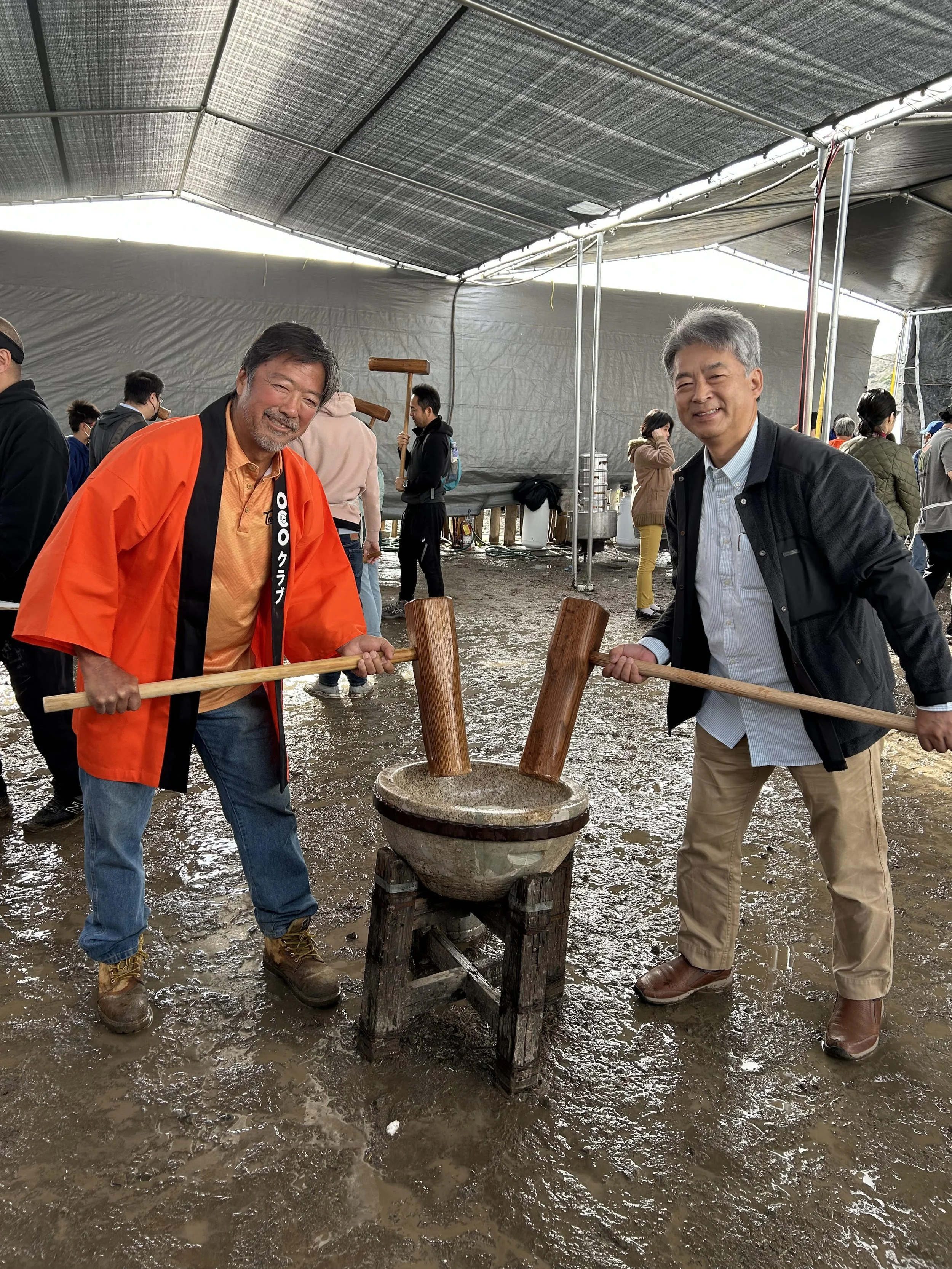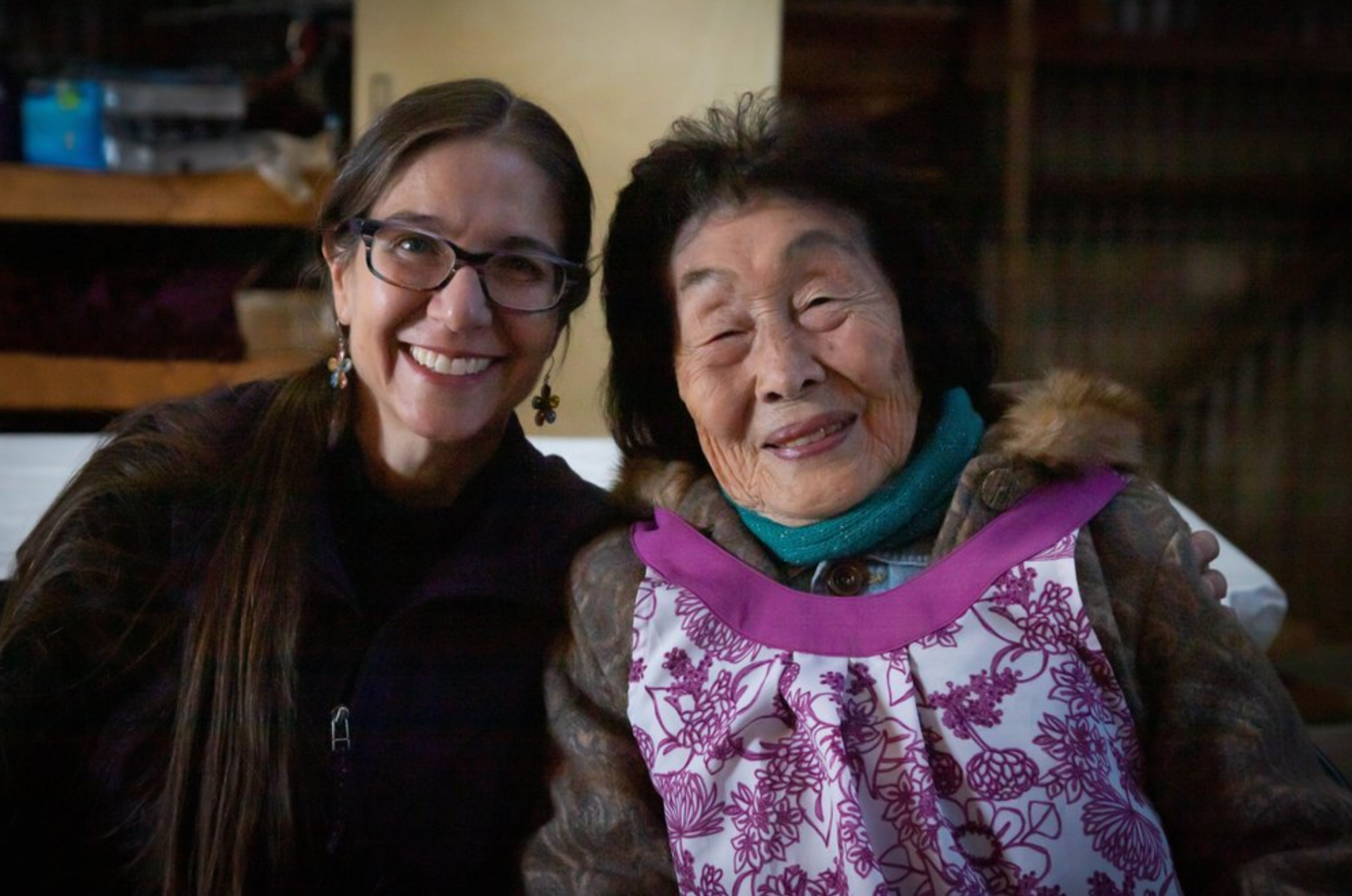
餅
THE MOCHI MOVIE
A story of community and resilience.

餅
THE MOCHI MOVIE
A STORY OF COMMUNITy and resilience.
THE MOCHI MOVIE explores the centuries-old Japanese tradition of Mochi-tsuki—the ceremonial pounding of rice to make mochi for the New Year—as a lens into resilience, identity, and intergenerational connection. Set against the backdrop of Japanese American history, including the impact of incarceration during World War II, the film weaves together personal stories, vibrant celebrations, and historical insights. Featuring appearances by cultural icon George Takei, Kristen Hayashi curator at the Japanese American National Museum, and the story of renowned photographer Toyo Miyatake, THE MOCHI MOVIE brings together voices across generations to reflect on the deeper meaning of tradition.
The film reminds us that traditions matter—not just for preserving the past, but for shaping who we become.
THE FILM

Mochi
[mōCHē]
noun
a Japanese ricecake made from short-grain sweet glutinous rice
Mochi-TSUKI
[mōCHē (t)so ōkē]
noun
the traditional practice of pounding Japanese ricecakes
THE MOCHI MOVIE features community voices across generations—including guest appearance by actor and activist George Takei.
Glenn Tanaka from Tanaka farms and Japan Consul General (of LA) Kenko Sone.
Photographer Toyo Miyatake.
©Toyo Miyatake
George Takei with filmmaker Sky Bergman.
“Making mochi was one of the few bright spots of my childhood—even behind barbed wire. It reminded us that we were still a community, even when everything else was taken away. ”
Why This Film Matters
THE MOCHI MOVIE is about more than mochi. It’s about the way tradition connects us—to our families, our ancestors, our identities, and each other.
At a time when our world feels increasingly fragmented—across generations, cultures, and lived experiences—this film offers a reminder that shared rituals have the power to bridge divides. Mochi-tsuki, the Japanese tradition of pounding sweet rice into mochi for the New Year, becomes a symbol of resilience, remembrance, and joy.
At its core, the film explores how Japanese Americans have preserved their heritage across generations, despite the trauma of World War II incarceration and the pressure to assimilate. Mochi-tsuki is not just about making mochi—it’s about remembering who you are and where you come from.
But this story isn't just for those with Japanese heritage. If you’ve ever gathered in a kitchen to make tamales, folded pierogies with your grandmother, baked baklava at the holidays, or cooked a special meal that links you to your roots, this film is for you. It's a celebration of how food becomes memory, how memory becomes tradition, and how tradition becomes legacy.
This film is a call to remember to honor the stories carried in our hands, in our recipes, in our shared rituals—and to recognize that preserving tradition is, at its core, an act of love and resilience.
Help bring “mochi” to you!
Support the making of THE MOCHI MOVIE.
If it’s $25 or $2,500, every bit helps.
If you prefer your donation be tax-deductible, please click here.
In the meantime…Watch our 20-minute sneak preview
We've decided to offer a sneak preview to spark excitement and raise vital funds for our nationwide outreach.
Mochi-tsuki Throughout history
The ancient tradition of preparing mochi to celebrate the Japanese New Year goes back centuries. Mochi-tsuki has long united Japanese Americans, from the hardships of World War II incarceration to modern-day celebrations. Once a symbol of resilience in incarceration camps, this tradition continues to bring generations together, preserving culture and community.
THE IMPORTANCE OF TRADITION
“What we Japanese have as part of our ancient cultural tradition is a relationship to the land and a feeling of spiritual connection to the way food is brought to us and the interdependency of land and human life.”
- Karen Nagano, Film Star
FAVORITE PART OF TRADITION
“My favorite part of the Mochi-tsuki ceremony is the continuity between the culture of my grandparents and the culture that I live now. By having the Mochi-tsuki, I'm still participating in our Japanese cultural heritage in a meaningful way.”
Mochi-tsuki ceremony in Manzanar War Relocation Camp, 1942. ©Toyo Miyatake
Mochi-tsuki ceremony in Irvine, CA, current day.
As a four-minute short film, THE MOCHI MOVIE has screened at dozens of film festivals and will delight and inspire millions of viewers nationwide when the hour long version comes to PBS as part of Asian Pacific Islander American Month in May 2026. Get involved, and bring this film to your community!
If you prefer your donation be tax-deductible, please click here.
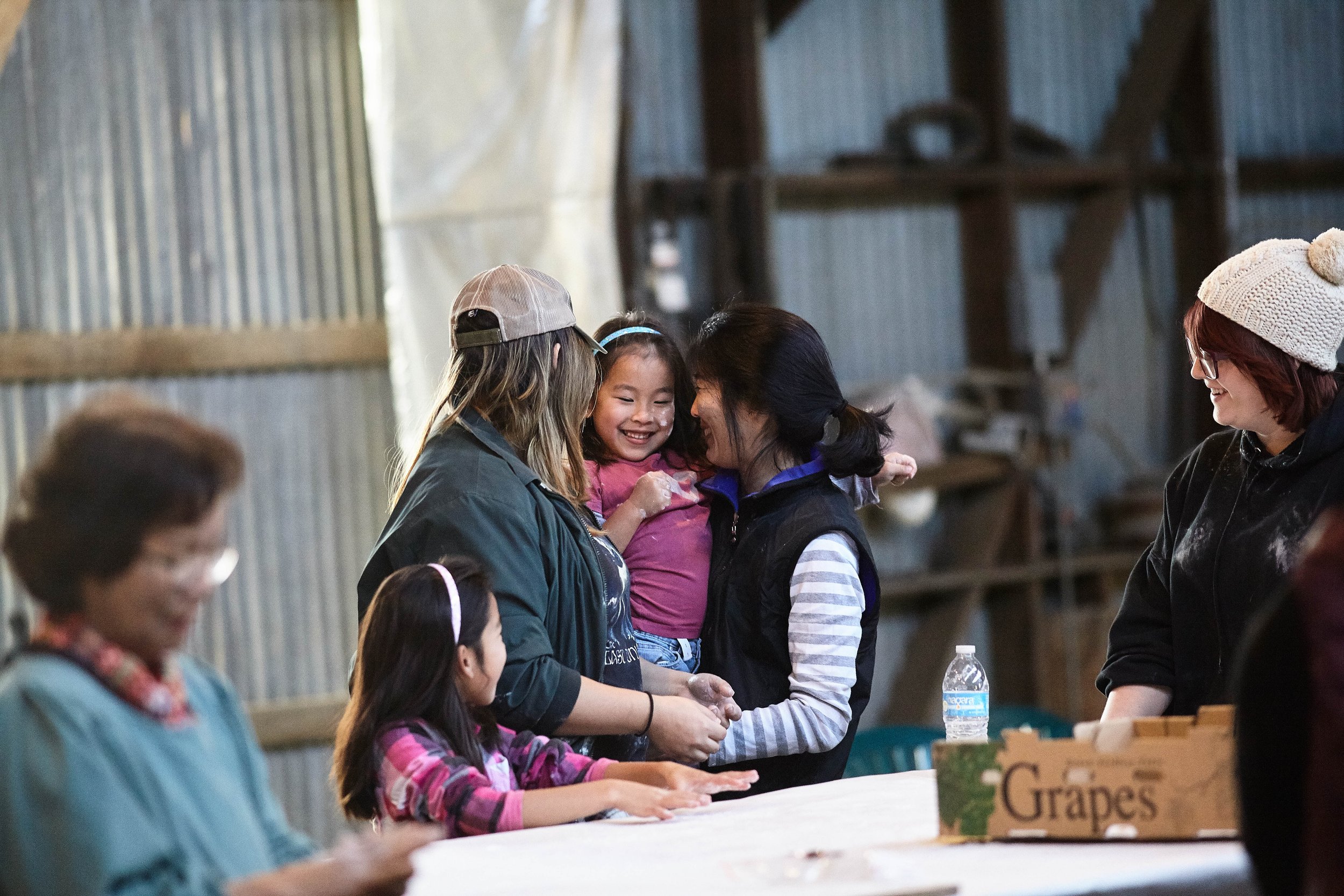
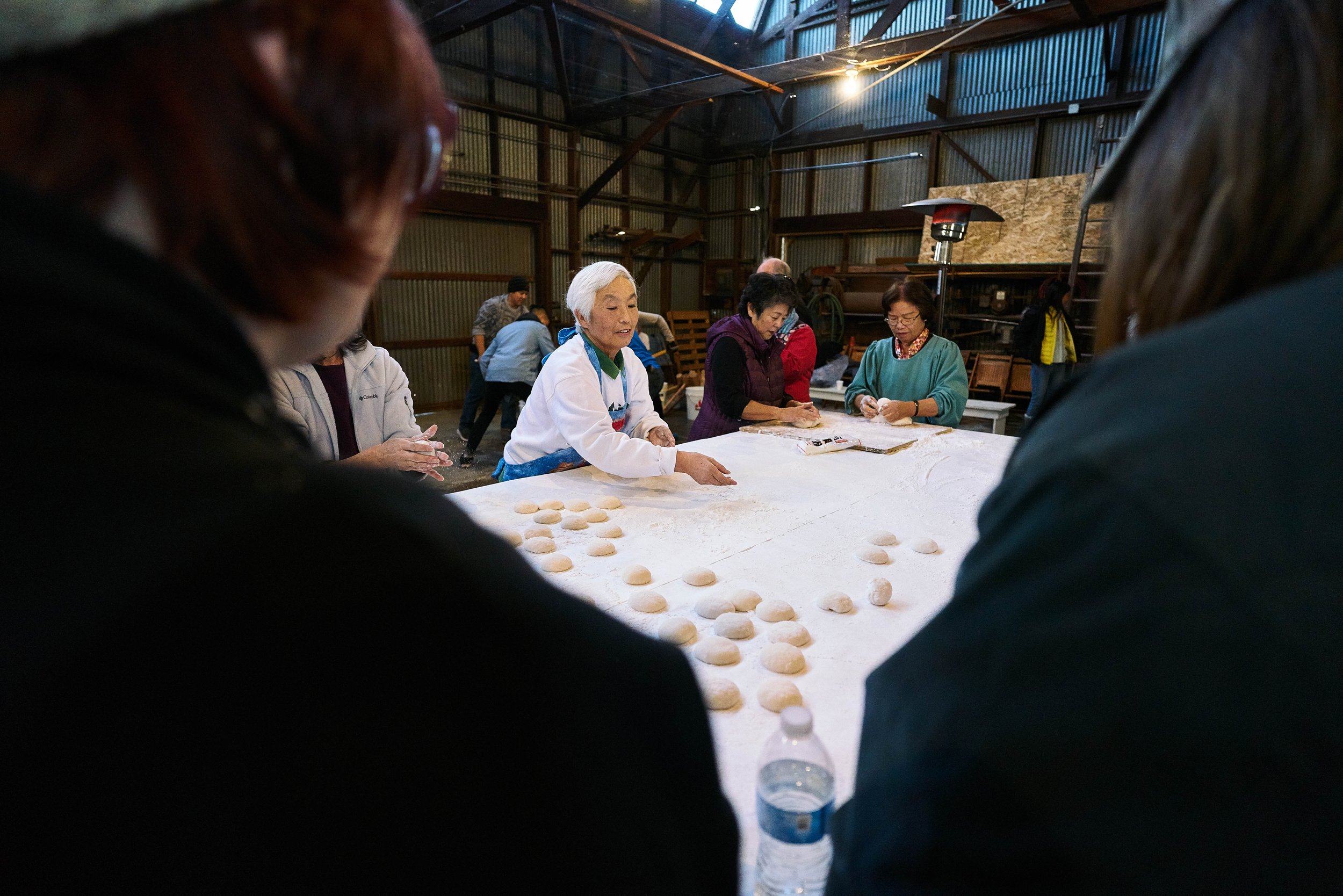
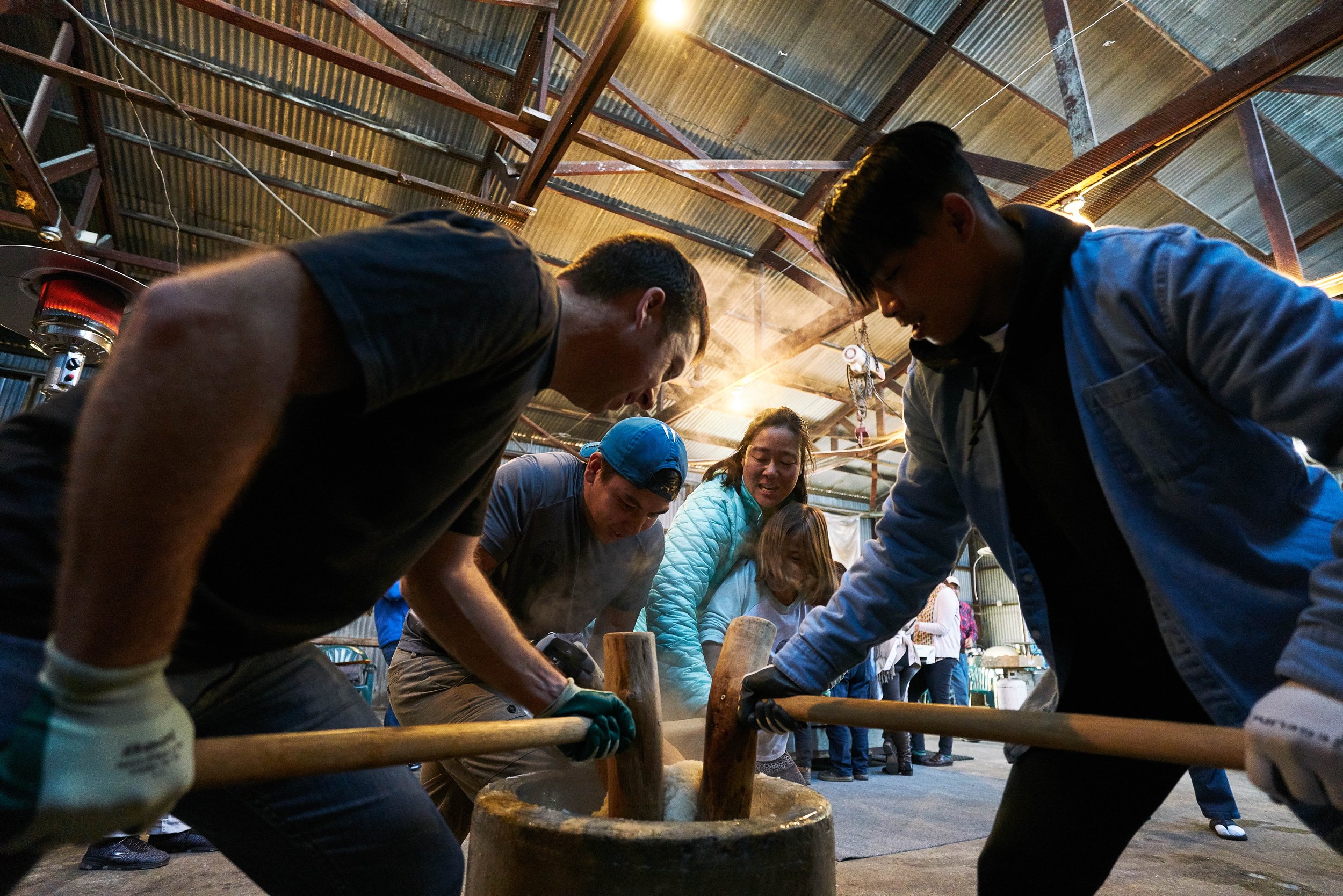
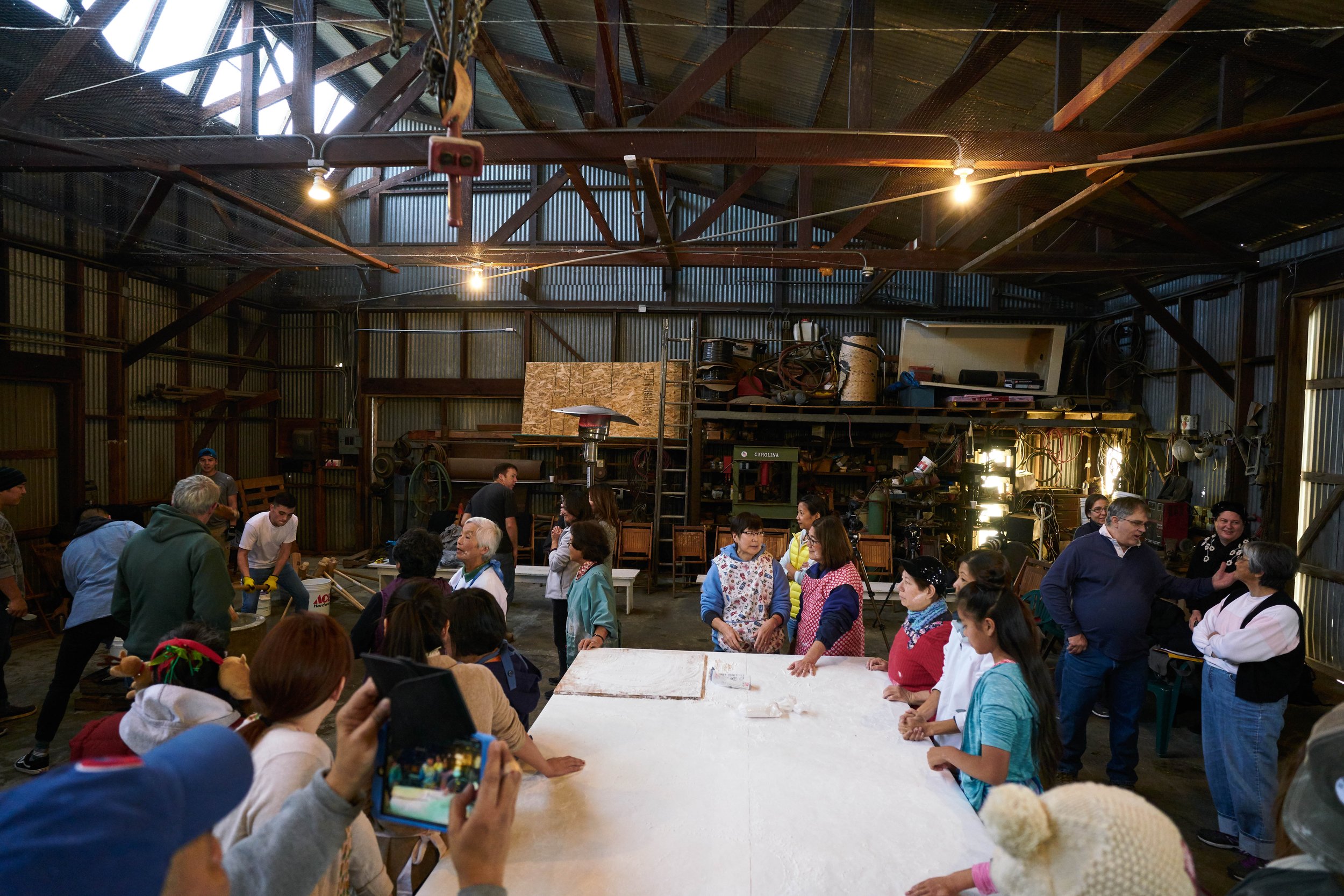
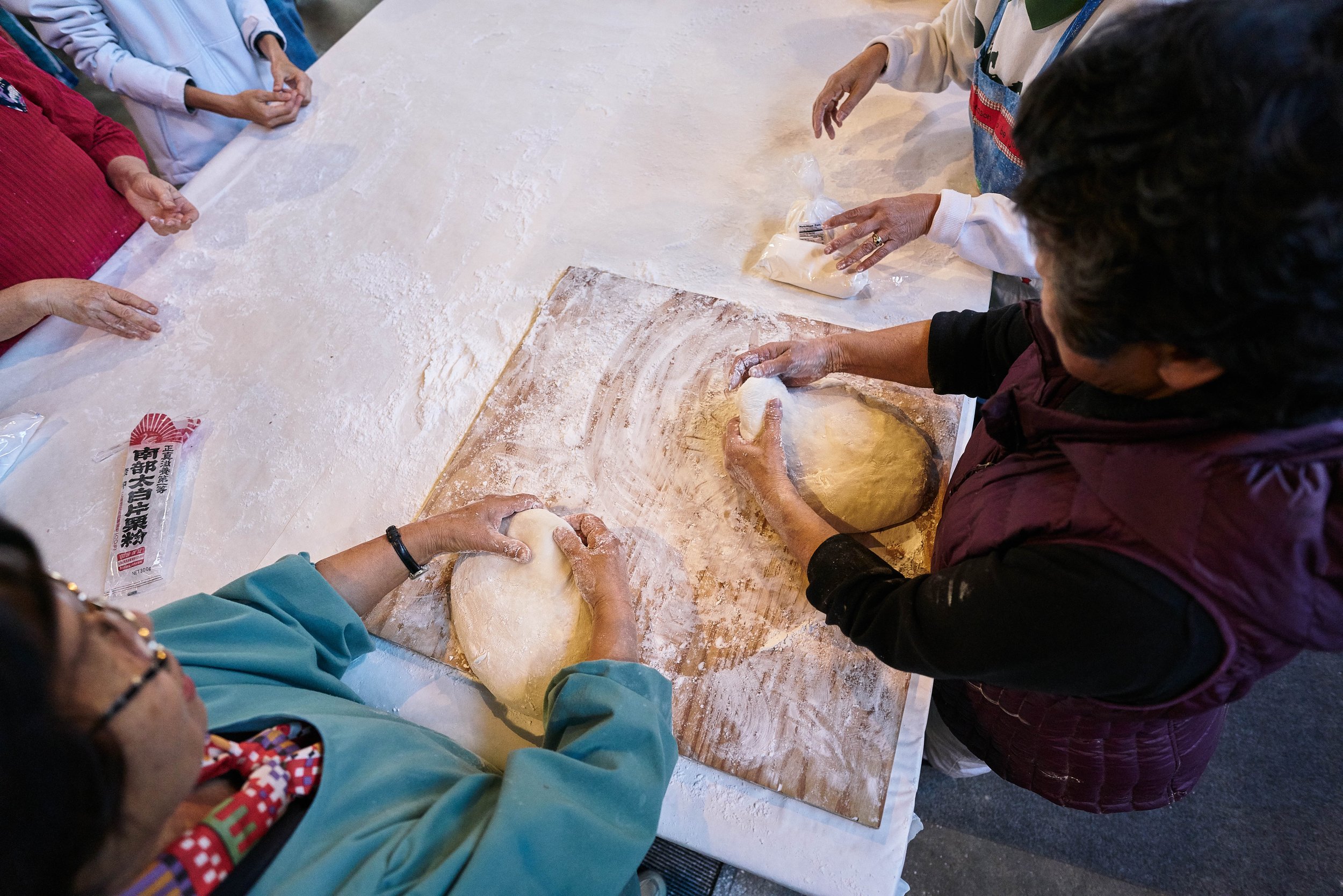
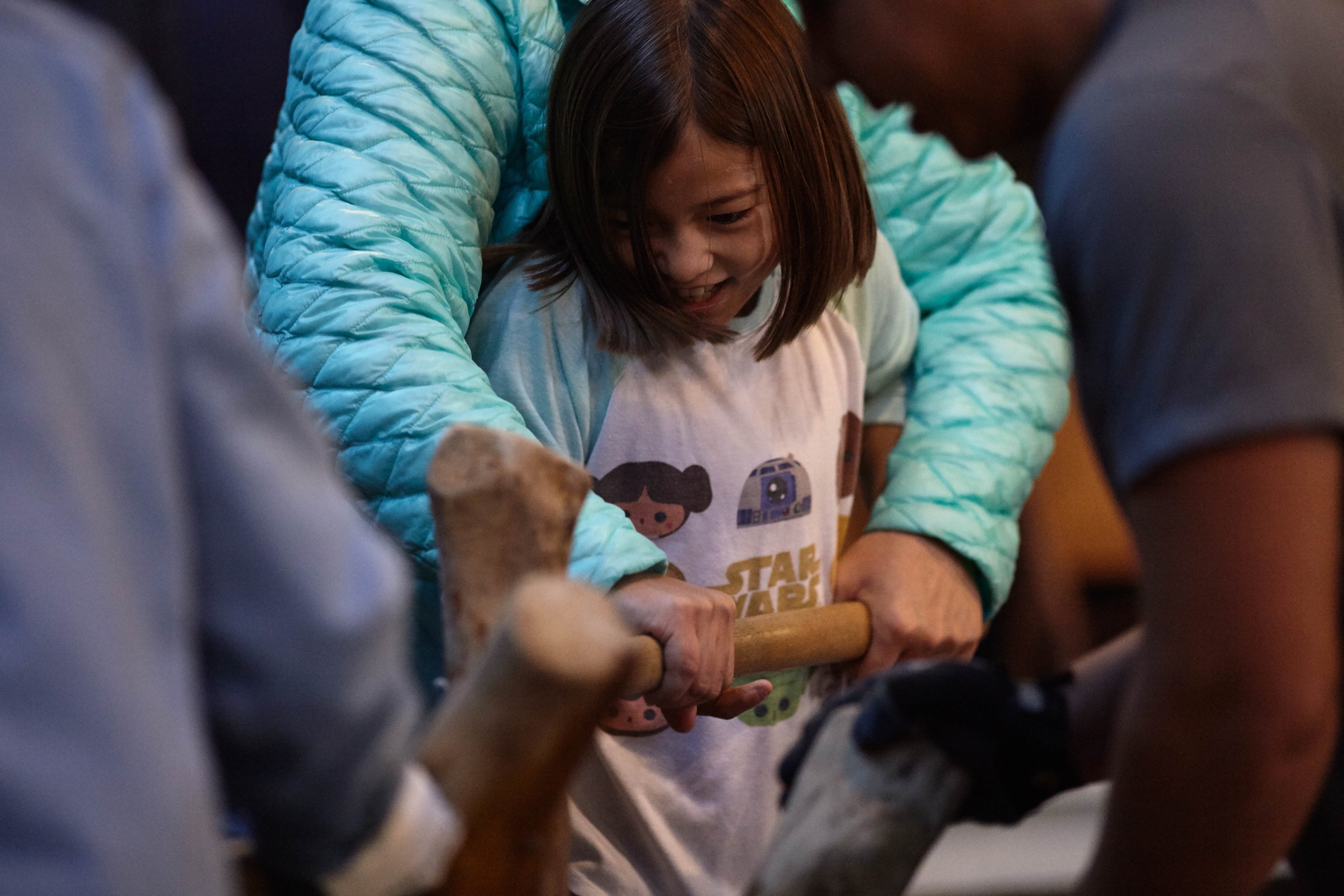
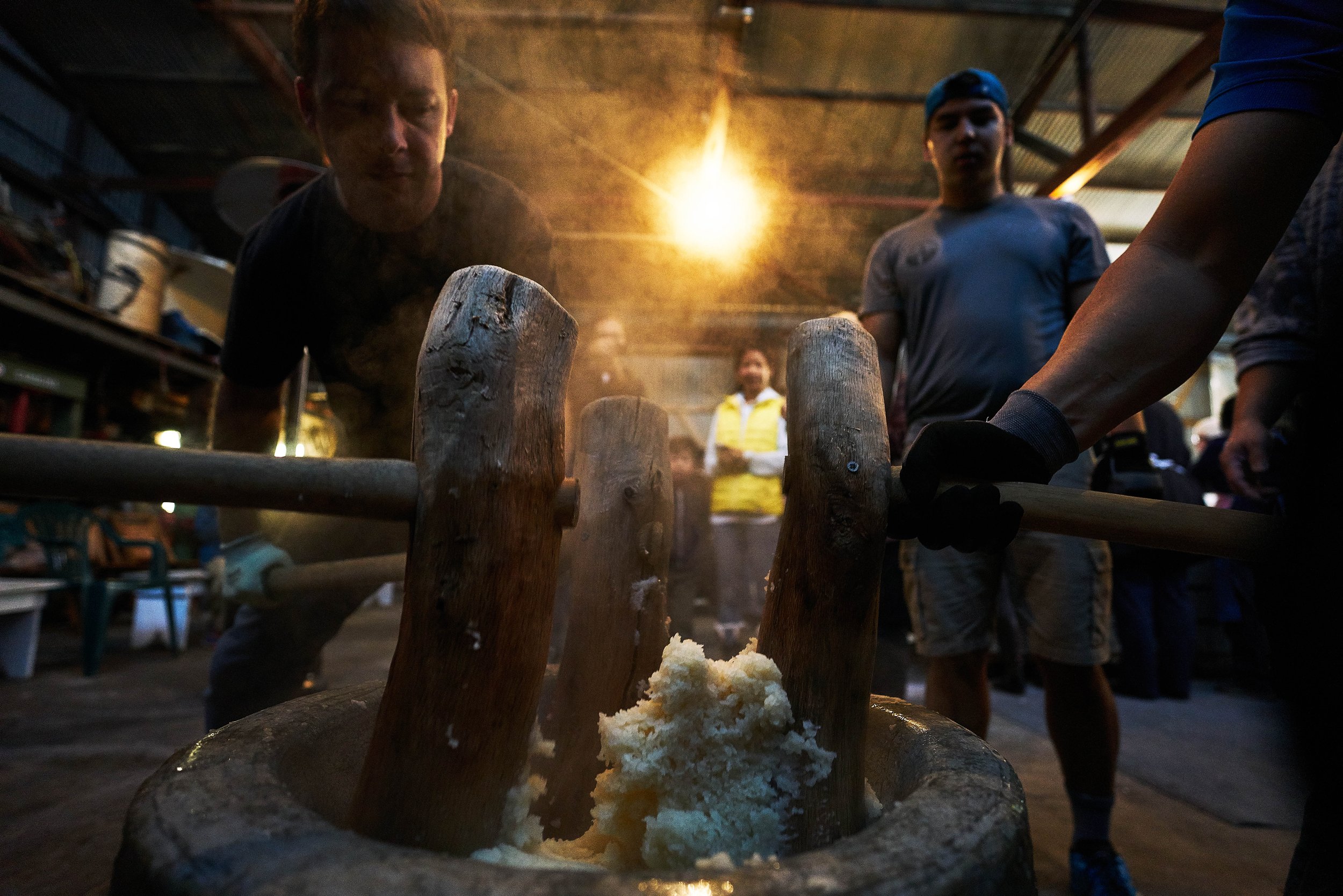
MEET THE TEAM
SKY BERGMAN, FILMMAKER
After a 30-year teaching career, Sky Bergman is embracing her “third act” as a filmmaker. She is a Professor Emeritus of Photography and Video and the former chair of the Art & Design Department at California Polytechnic State University in San Luis Obispo, California. Her directorial debut, the PBS documentary Lives Well Lived, celebrates the stories of older adults who are living life with meaning and purpose. Today, Sky focuses on creating films that honor intergenerational connections and cultural traditions.
She was inspired to make THE MOCHI MOVIE after interviewing Susy Eto Bauman, a star of Lives Well Lived, and witnessing the Eto family’s Mochi-tsuki ceremony. As an aunt to Japanese American nephews, the tradition holds personal meaning and deepens her connection to the story.
JAIME HEINTZ, EDITOR
Jaime Ryan Heintz is a film and television writer, producer, director, cinematographer and editor. His credits include the Emmy Award-winning documentary series Through the Wormhole with Morgan Freeman and the independent feature film Betty I Am. Recently, he worked with Apple for several years developing new technology for the entertainment industry.
He currently runs a weekly YouTube channel devoted to film history and analysis calledRental Report Review. He holds a BFA in film production from California State University Long Beach. He lives in Pasadena, CA.
FORREST MORI, DIRECTOR OF PHOTOGRAPHY
Growing up in Santa Barbara, Forrest began his love of photography by shooting film with a Kodak Instamatic. He landed his first regular gig with his father’s Nikon in tow documenting student life for the Santa Barbara High School yearbook. Never without his eye on a viewfinder, he worked at a camera store to earn an employee discount to purchase a Nikon of his own.
Forrest has captured everything from life events like weddings and celebrations for family and friends, to pro bono work for nonprofits. One of his earliest filmmaking projects supported local community members in fundraising for clean water in the DR Congo, raising over 1 million dollars. As a Director of Photography, Forrest continues to depict the essence of human connections and experiences.
KAORI FUNAHASHI PETERS, SECOND SHOOTER
Kaori Funahashi Peters is a California Central Coast-based commercial photographer specializing in endurance sports and multi-day adventure racing events, often in harsh environments all over the globe.
FRANCESCA LEE, SECOND SHOOTER
Francesca Lee is an NYC elopement and portrait photographer. She co-creates images of confidence and ease so you can relive your Vogue moment again and again.
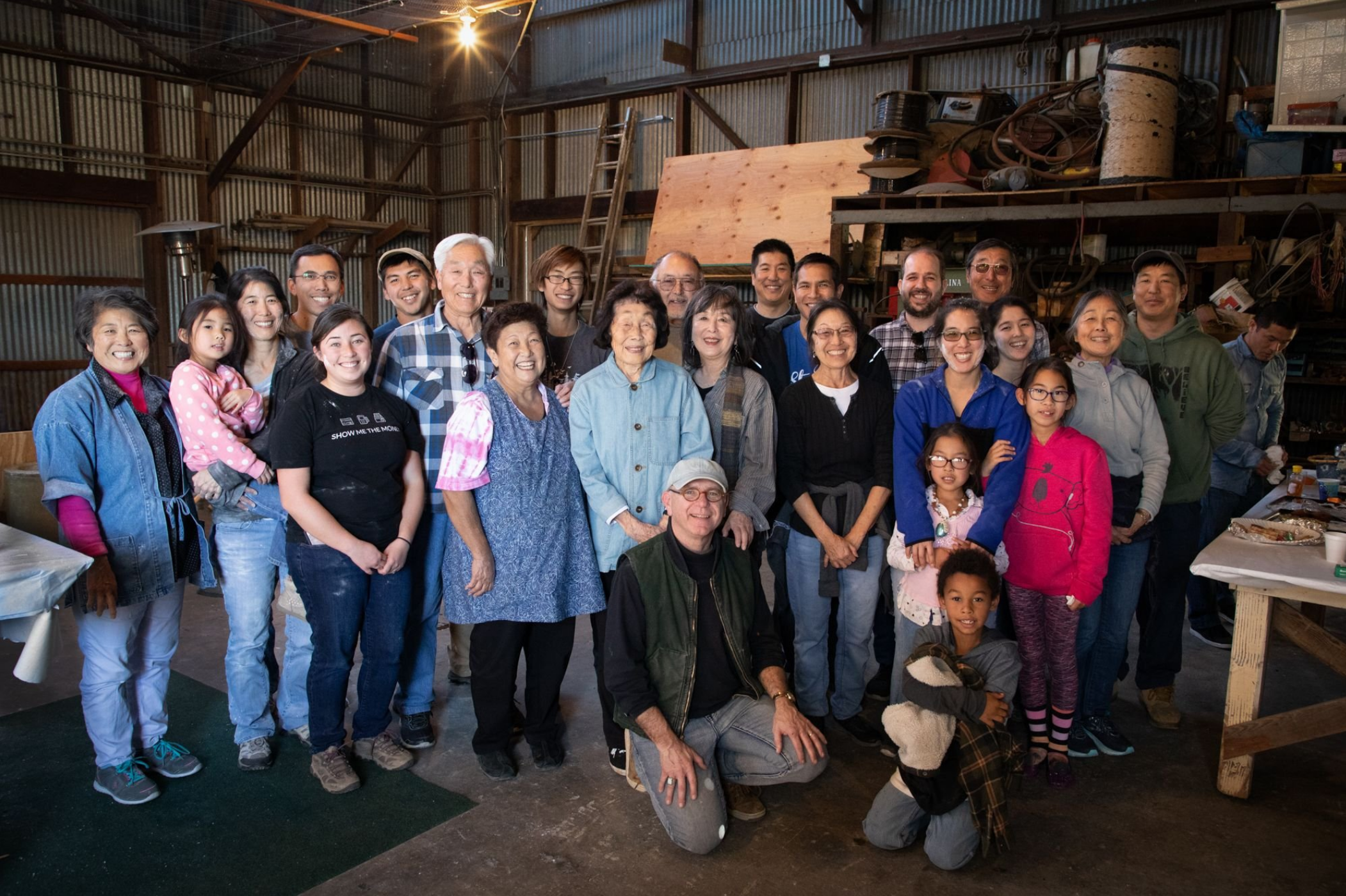
Bring this PBS film to your community.
Contact the filmmakers for screenings, speaking events, and partnership opportunities.
